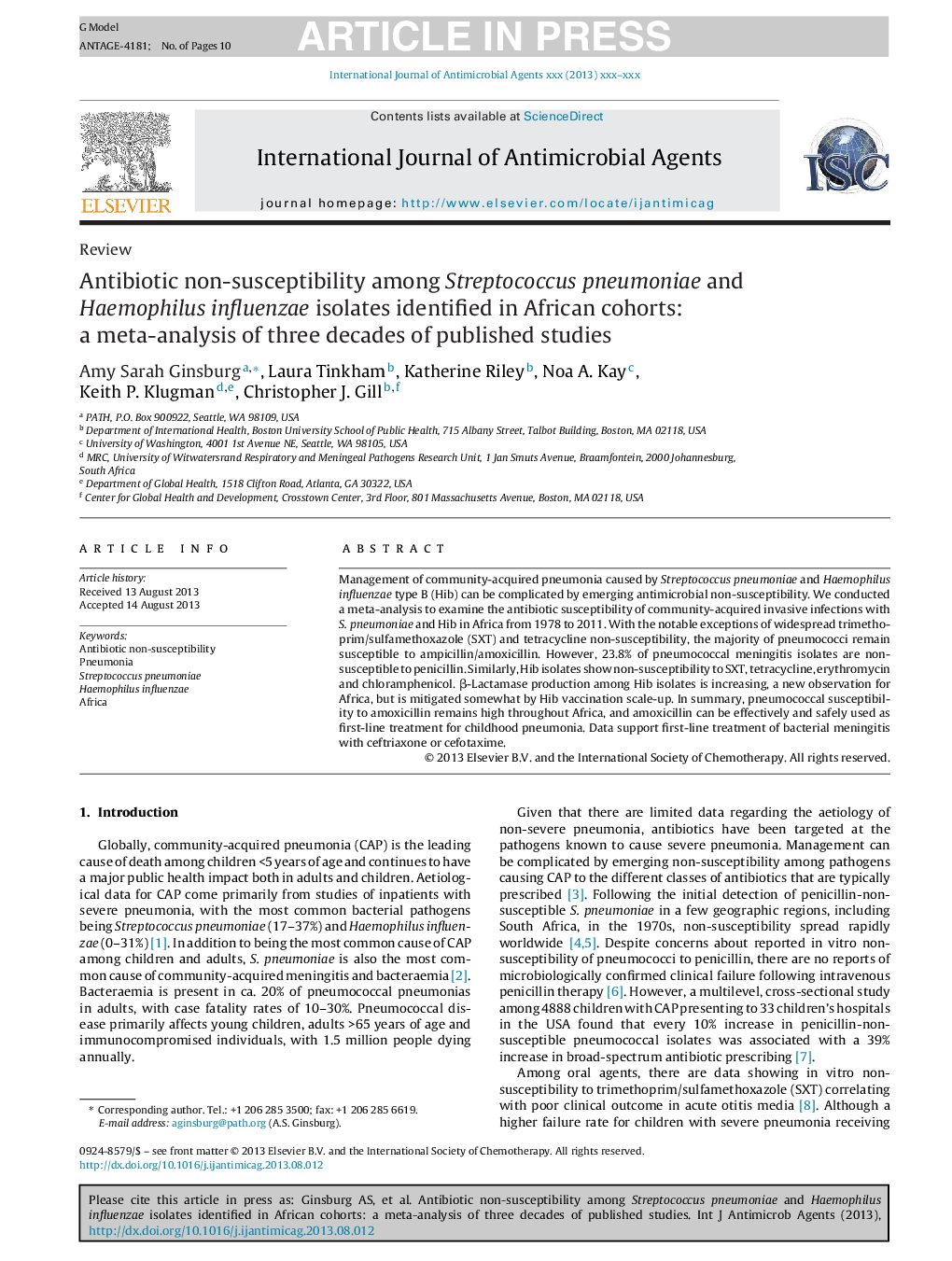| Article ID | Journal | Published Year | Pages | File Type |
|---|---|---|---|---|
| 6117938 | International Journal of Antimicrobial Agents | 2013 | 10 Pages |
Abstract
Management of community-acquired pneumonia caused by Streptococcus pneumoniae and Haemophilus influenzae type B (Hib) can be complicated by emerging antimicrobial non-susceptibility. We conducted a meta-analysis to examine the antibiotic susceptibility of community-acquired invasive infections with S. pneumoniae and Hib in Africa from 1978 to 2011. With the notable exceptions of widespread trimethoprim/sulfamethoxazole (SXT) and tetracycline non-susceptibility, the majority of pneumococci remain susceptible to ampicillin/amoxicillin. However, 23.8% of pneumococcal meningitis isolates are non-susceptible to penicillin. Similarly, Hib isolates show non-susceptibility to SXT, tetracycline, erythromycin and chloramphenicol. β-Lactamase production among Hib isolates is increasing, a new observation for Africa, but is mitigated somewhat by Hib vaccination scale-up. In summary, pneumococcal susceptibility to amoxicillin remains high throughout Africa, and amoxicillin can be effectively and safely used as first-line treatment for childhood pneumonia. Data support first-line treatment of bacterial meningitis with ceftriaxone or cefotaxime.
Related Topics
Life Sciences
Immunology and Microbiology
Applied Microbiology and Biotechnology
Authors
Amy Sarah Ginsburg, Laura Tinkham, Katherine Riley, Noa A. Kay, Keith P. Klugman, Christopher J. Gill,
